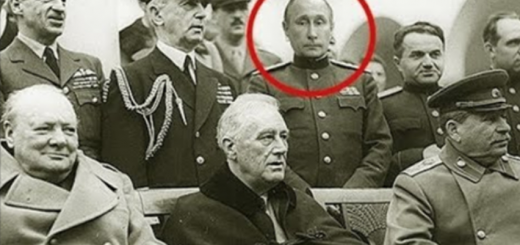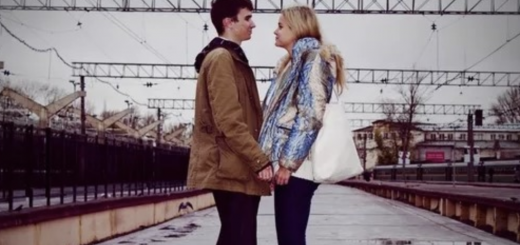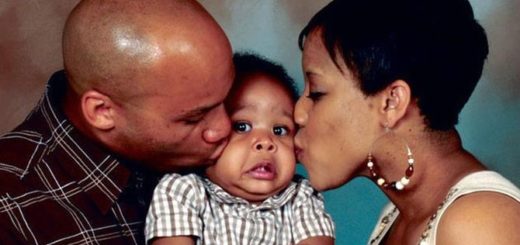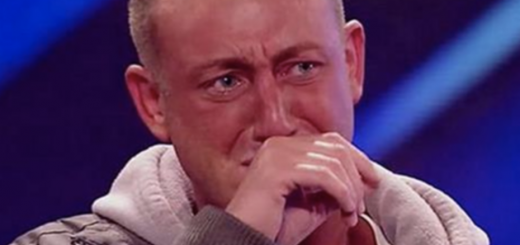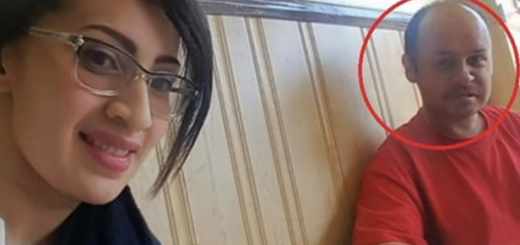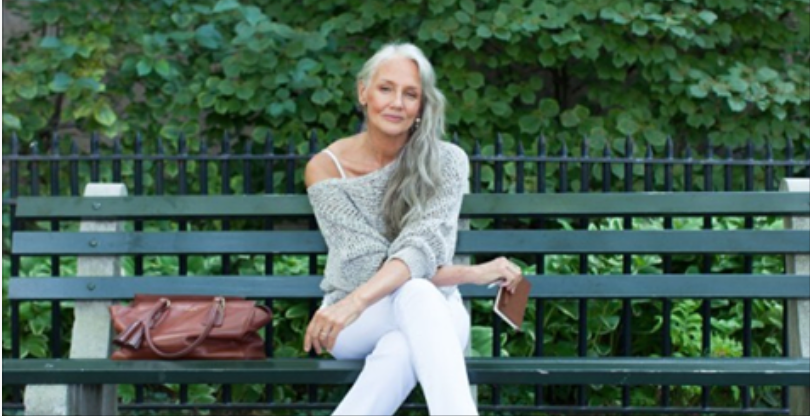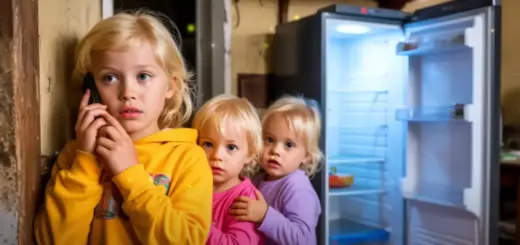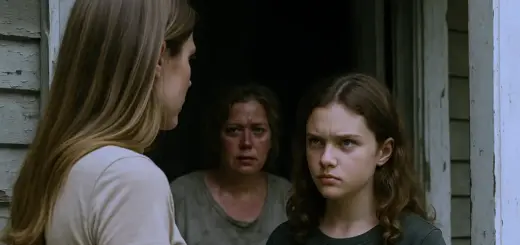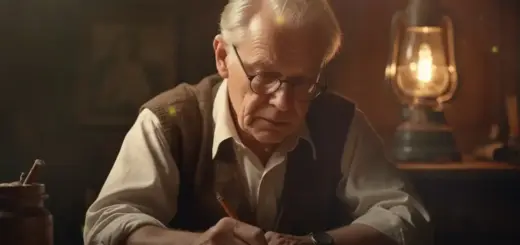The question hung in the night air, loaded with hope and fear and possibilities that would change all their lives forever. James looked at Rachel, who nodded almost imperceptibly.
«Yes,» he said quietly. «We’re a family now.»
And for the first time in eleven years, James Crawford felt like he was exactly where he belonged.
Three weeks later, James Crawford sat in his office at six a.m., surrounded by legal documents he never thought he’d need to understand. Paternity test results. Ninety-nine point nine-seven percent confirmation that Madison was his daughter. Custody evaluation reports. Family court procedures. Educational enrolment forms for three children who’d never attended private school before.
The paternity results hadn’t surprised anyone, but seeing it in black and white had triggered a profound shift in James. This wasn’t just about helping a family in need anymore. This was about his daughter, his blood, his responsibility.
The adjustment period had been more challenging than he’d anticipated. Madison was mature beyond her years, but still struggled with nightmares about their old apartment. The twins had moments of overwhelming excitement, followed by periods of withdrawal, as if they couldn’t quite believe their new circumstances were real.
And Rachel… Rachel was fighting him on nearly everything.
«Mr. Crawford,» his assistant Patricia’s voice came through the intercom. «The family law attorney is here for your seven a.m. appointment.»
«Send her in.»
Margaret Thornton was exactly the kind of attorney James needed. Sharp, experienced in complex custody cases, and realistic about the challenges ahead.
«James,» she said, settling into the chair across from his desk. «We need to discuss some complications. The paternity test confirms Madison is your daughter, but legally establishing your rights isn’t straightforward.»
«What do you mean?»
«David Martinez legally adopted Madison when he married Rachel. His name is on her birth certificate as her father. Even though he’s deceased, that legal adoption doesn’t automatically disappear just because biological paternity is established.»
James felt something cold settle in his stomach. «So what are my rights?»
«Legally? Right now, you have none. You’re the biological father of a child who was legally adopted by another man. To establish parental rights, we’d need to petition the court to have the adoption overturned or modified.»
«Can we do that?»
«It’s possible, but it’s not simple. The court’s primary concern is the best interest of the child. Given that Madison has lived with Rachel as her primary guardian and considered David Martinez her father for seven years, a judge might question why changing that legal status is necessary.»
James leaned back in his chair, processing this information. «What about the twins?»
«That’s even more complex. You have no biological relationship to them, and they were also legally adopted by David Martinez. If you want to adopt them, you’d need Rachel’s consent, but you’d also need to demonstrate that adoption is in their best interests, not just your desires.»
«This is ridiculous. They’re living with me. I’m providing for them. We’re functioning as a family.»
«I understand your frustration, but family law moves slowly and carefully. The court has seen too many cases where well-meaning adults disrupt children’s lives with good intentions but poor execution.»
Margaret pulled out another folder. «There’s something else. Rachel’s employment situation is complicating things.»
«How so?»
«She’s been unemployed for three weeks since moving in with you. From a legal perspective, that could be seen as her becoming financially dependent on you, which raises questions about her ability to make independent decisions about the children’s welfare.»
James frowned. «She’s been focusing on getting the girls settled. We agreed she’d look for work once they adjusted to their new living situation.»
«I understand that, but perception matters in family court. A judge might wonder if Rachel is agreeing to changes in custody or adoption because she feels financially coerced.»
The conversation continued for another hour, each legal complexity adding weight to James’s growing understanding that good intentions weren’t enough to automatically create a family. The law existed to protect children, but it also meant that his path to legally protecting Madison and the twins would be long and uncertain.
After Margaret left, James sat alone in his office, staring at Manhattan awakening outside his windows. His phone buzzed with the daily avalanche of messages, meeting requests, and urgent decisions that couldn’t wait. But for the first time in his career, the business world felt secondary to the legal maze he needed to navigate.
His private line rang. Madison, calling from the penthouse.
«James, is everything okay? You left really early this morning.»
The concern in his daughter’s voice—his daughter—still caught him off guard every time.
«Everything’s fine, sweetheart. I had some important meetings to arrange. How’s your mum feeling today?»
«Better. She made us pancakes for breakfast, and she didn’t need to sit down halfway through cooking them.» Madison paused. «James, are we going to be able to stay with you permanently?»
The question he’d been dreading. «Why do you ask?»
«Because last night I heard Mommy on the phone with someone, and she sounded worried. She kept saying things like, ‘I don’t know if this is sustainable,’ and ‘what if he changes his mind about all this?'»
James closed his eyes. Rachel was protecting herself and the girls the only way she knew how: by preparing for the possibility that this arrangement might not last.
«Madison, I want you to listen to me very carefully. I’m never going to change my mind about taking care of you and your sisters. But there are some grown-up legal things we need to work through to make everything official.»
«What kind of legal things?»
«Complicated things about adoption and custody, and making sure that if anything ever happened to me or your mum, you girls would always be safe and taken care of.»
Madison was quiet for a moment. «Is that why Mommy’s been acting weird?»
«What do you mean weird?»
«She keeps cleaning things that are already clean, and she won’t let us kids touch anything expensive. Yesterday Mia picked up one of your books, and Mommy made her put it down immediately and wash her hands. It’s like she’s afraid we’re going to break something and you’ll get mad.»
James felt his heart break a little more. Rachel was living like a guest in his home, afraid to fully settle in, because she didn’t trust that their place there was secure.
«Madison, I want you and your sisters to treat this as your home. Touch things, use things, make noise, make messes. That’s what families do.»
«I’ll tell Mommy you said that.»
«Actually, let me talk to your mum about it. Is she there?»
«She’s helping Zoe with her reading homework. Hold on.»
James heard muffled conversation, then Rachel’s voice, cautious and formal. «Good morning, James. I hope your meetings went well.»
«Rachel, we need to talk. Not about legal stuff, about us. About how you’ve been feeling since you moved in.»
«I’m fine. The girls are adjusting well, and…»
«Rachel, Madison tells me you won’t let the girls touch my books, that you’re cleaning things that don’t need to be cleaned. That doesn’t sound like someone who’s comfortable in what I want to be your home.»
The silence stretched so long, James wondered if the call had dropped.
«It’s hard,» Rachel said finally, her voice barely above a whisper. «James, three weeks ago, I was worried about how to pay for groceries. Now I’m living in a place that’s worth more than I’ll make in my entire lifetime. I don’t know how to act, how to let the girls act.»
«What if they break something irreplaceable? What if I make a mistake that ruins all this?»
«What mistake could you possibly make?»
«What if you decide this is too much work? What if the novelty of having a family wears off, and you realize you prefer your quiet, organized life? What if I’m not the person you remember, and you figure out that you don’t actually want us here permanently?»
James felt a rush of understanding. Rachel wasn’t just protecting the girls from potential disappointment. She was protecting herself from a heartbreak she’d already lived through once.
«Rachel, I want you to listen to me. Eleven years ago, I lost you because other people made decisions for us. I’m not going to let that happen again.»
«But what if—»
«No what-ifs. We’re going to work through whatever challenges come up, together. But first, I need you to stop living like a guest in your own home.»
That evening, James came home to find Rachel in the kitchen, preparing dinner with the careful precision of someone who was afraid to make a mess. The girls were at the dining table, working on homework with the kind of quiet concentration that suggested they’d been warned to be on their best behavior.
«Hey, everyone,» James said, loosening his tie. «How was your day?»
«Good,» the three girls chorused in voices that were a little too polite, a little too careful.
James looked around the immaculate kitchen, then at Rachel’s tense posture, and made a decision.
«You know what? I think this kitchen is too clean.»
Everyone looked at him in surprise.
«Madison, want to help me make cookies? The kind where we get flour everywhere and don’t worry about the mess?»
Madison’s eyes lit up, but she glanced nervously at her mother.
«It’s okay,» Rachel said quickly. «Just be careful not to—»
«Rachel.» James’s voice was gentle but firm. «Stop. This is their home. Our home. A little flour on the counters isn’t going to hurt anything.»
What followed was the messiest, loudest, most chaotic evening the penthouse had ever witnessed. Flour ended up on the floor, chocolate chips were eaten directly from the bag, and Mia managed to get cookie dough in her hair. The twins shrieked with laughter when James deliberately dropped an egg.
Madison forgot to be mature and responsible for the first time since he’d met her. Rachel watched from the sidelines at first, but gradually began to relax as she realized that James wasn’t going to become frustrated with the chaos. By the time they were all covered in flour and the kitchen looked like a bakery had exploded, she was laughing as hard as the children.
«This is insane,» she said, trying to wipe cookie dough off Zoe’s cheek. «Your beautiful kitchen is destroyed.»
«Good,» James said, pulling her into a hug that covered her work clothes with flour. «It looks like a family lives here now.»
Later that night, after the girls were in bed and the kitchen was somewhat restored to order, James and Rachel sat on the couch with cups of coffee and the last of the cookies they’d made.
«I’ve been thinking about what you said this morning,» Rachel said, «about legal complications and making things official. And I want to do whatever it takes to make this permanent, not just for the girls, but for me too.»
She turned to look at him. «James, I’m falling in love with you again. Not the you from 11 years ago, but the man you are now. The man who makes cookies with children and doesn’t care about flour on his marble counters.»
James felt his heart race. «Rachel, but—»
«I’m also terrified. Because if we do this, if we really commit to building a life together and then it doesn’t work out, it won’t just be my heart that breaks. It’ll be three little girls who’ve already lost one father.»
«So what do you need from me to feel secure about taking that risk?»
Rachel was quiet for a long moment. «I need to know that you understand what you’re signing up for. I need to know that when Madison has her first teenage meltdown, you won’t question whether this was all a mistake. I need to know that when Zoe brings home failing grades or Mia gets in trouble at school, you won’t wish you’d stayed in your quiet, controlled life.»
«And I need to know that when my business has a crisis and I have to work late nights for a week straight, you won’t assume I’m choosing work over family. I need to know that when I make parenting mistakes—and I will—you won’t use that as proof that I’m not cut out for this.»
They looked at each other, both understanding that they were negotiating the terms of not just a relationship, but a lifetime commitment to three children who deserved stability above all else.
«So what do we do?» Rachel asked.
«We take it one day at a time. We communicate about everything, even the uncomfortable stuff. And we remember that we’re both learning how to be a family.»
«James?»
«Yeah?»
«I love you too. Present tense, not past tense.»
As James leaned over to kiss her, their first real kiss in 11 years, he heard the soft patter of small feet in the hallway. They broke apart to see Mia peeking around the corner, grinning at them.
«Are you guys getting married now?» she asked with seven-year-old directness.
Rachel blushed furiously, but James laughed. «What would you think if we did?»
«I think it would be good. Then you’d be our daddy for real, not just for pretend.»
«I’m already your daddy for real, Mia. Marriage just makes it official.»
As Mia scampered back to bed, chattering excitedly to her sisters about weddings, James realized that the legal complexities, the adjustment period, and the challenges ahead didn’t matter as much as the simple truth that this felt right.
He had his family. Now he just had to figure out how to keep them.
Two months later, James received a call that would test every commitment he’d made to his new family.
«James, we have a problem.» David Chang, his lawyer, sounded grim. «Someone’s challenging your fitness as a guardian.»
James stepped into his private office, closing the door behind him. It was Saturday afternoon, and the girls were in the living room, building an elaborate fort out of couch cushions, while Rachel read nearby. Their laughter echoed through the penthouse, the sound of children who finally felt secure enough to just be children.
«What kind of challenge?»
«A formal complaint has been filed with Child Protective Services, alleging that you’re providing an unstable environment for three minors. The complaint cites concerns about your work schedule, the unconventional living arrangements, and questions about the children’s welfare.»
James felt ice form in his stomach. «Who filed the complaint?»
«It’s anonymous. But James, it contains information that could only come from someone with access to your personal schedule and corporate activities. Someone who knows about your recent absences from board meetings and the Shanghai deal delays.»
The implication was clear. Someone from his own company was trying to use his newfound family against him.
«What does this mean for the girls? CPS has to investigate any formal complaint. They’ll want to interview the children separately, inspect the living arrangements, and assess the stability of the household.»
«Given that you’re not legally recognized as Madison’s father yet, and you have no legal claim to the twins at all… could they be removed from my custody?»
«It’s possible. Rachel has legal custody, but if CPS determines that her living situation is unstable or that she’s unable to provide adequate care independently of you, they could recommend alternative arrangements.»
James looked through his office door at his family. Madison helping Zoe balance a pillow on top of their fort, while Mia directed the construction with the authority of a tiny architect. Three weeks ago, he’d watched Madison have her first genuine belly laugh since he’d known her, triggered by Mia’s impression of their doorman. These children were finally healing from years of insecurity and fear.
«When is the investigation?»
«Monday morning. James, you need to understand something. This isn’t just about whether you’re providing good care for these children. Someone is questioning your judgment as a CEO, using your family as evidence that you’ve become distracted and unreliable.»
After David hung up, James sat alone in his office, processing the new threat to his family’s stability. Through the wall, he could hear Rachel helping the girls clean up their fort, her voice patient and warm as she negotiated the complex social dynamics of three children sharing space.
She’d made tremendous progress over the past two months. The frightened, exhausted woman he’d found in that tiny apartment had gradually been replaced by someone who laughed more, worried less, and was slowly beginning to believe that their new life might actually be permanent. Now, he had to tell her that everything they’d built might be at risk again.
«James?» Rachel appeared in the doorway of his study, concern written across her face. «Everything okay? You’ve been in here for an hour.»
«We need to talk. All of us.»
Gathering the family in the living room, James explained the situation as gently as possible. The girls listened with the serious attention of children who’d learned that adult problems could dramatically affect their lives.






